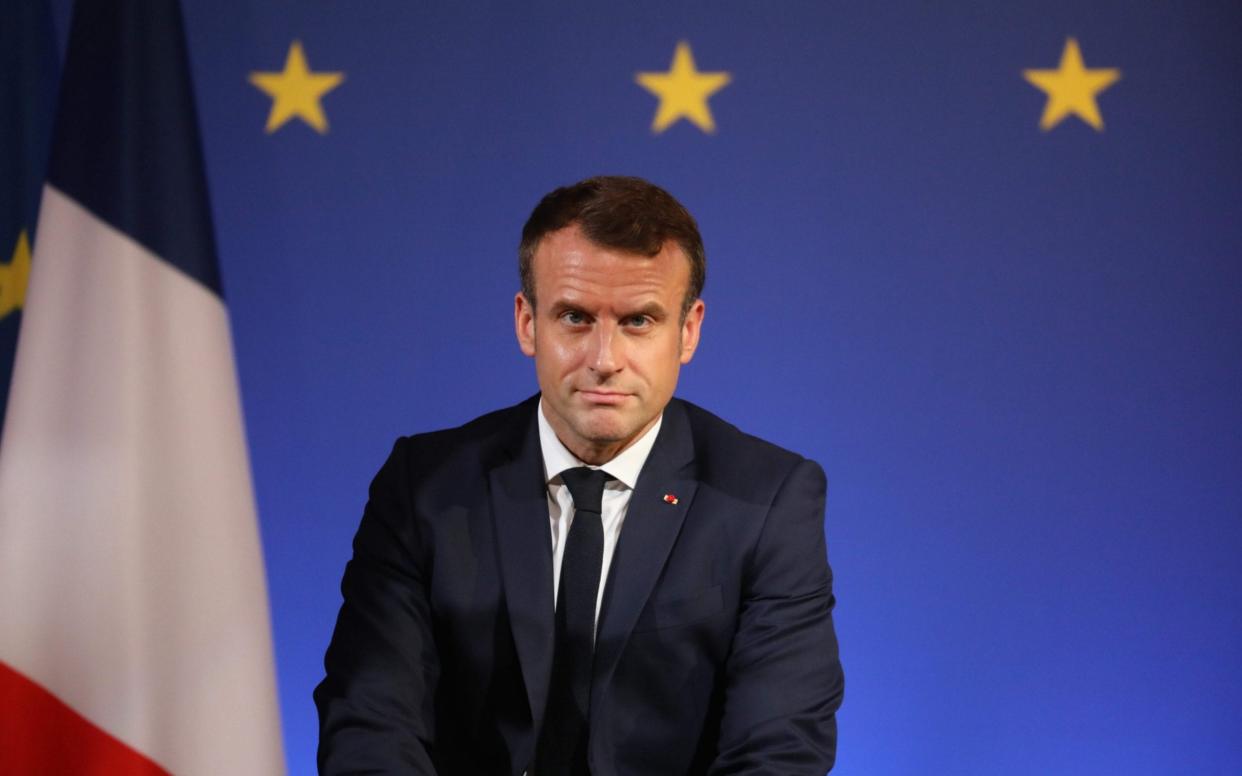Why Emmanuel Macron's attempt to reset relations with Russia will alienate his allies and come unstuck over Nato

Emmanuel Macron's bold - some might say hubristic - attempt to redefine the nature of Nato will go down like a lead balloon with most member states.
At a mundane level, it is perfectly true to say that Russia is not Nato's enemy. No Nato country wants to go to war with Russia, and Russia certainly does not want a war with Nato.
And there certainly are good reasons for all Nato members to to worry about other threats like terrorism and the deteriorating situation in the Sahel.
But for Central European members who neighbour Russia, Nato's old raison d'etre is as important now as ever before because - put bluntly - Russia is and remains their main security threat.
For them, being in an alliance that Russia does not want to risk a war with is the whole point.
Those members will be very guarded about any proposals from the French that look like an attempt to water that down.
Besides coming across as an arrogant dismissal of the security concerns of several member states, there is something else bothersome - if not frankly wearisome - about Mr Macron's recent pronouncements.

There is a well established tradition of bright young Western politicians thinking they can clear up "misunderstandings" with Russia with a "reset" of the mess made by their predecessors - only to get upset when Vladimir Putin continues to pursue his vision of Russian interests anyway.
Barack Obama tried it. So did David Cameron. Both found that Vladimir Putin simply has a different vision of how the world should be - and what is in his country's interests.
What Mr Macron is about to discover - if his foreign policy advisors have not already explained it to him - is that Russia views Nato as a fundamentally hostile alliance that poses a threat to its own national security and foreign policy interests.
The long term strategic vision in Moscow is for either a new European security space - in other words disbandment of Nato and its replacement with OSCE or something similar as the main forum for settling security questions on the continent - or, failing that, establishment of deterrence and respect for its "sphere of interests" - for example in Ukraine - with whatever means are effective.
So if Mr Macron wants to clear up "misunderstandings" with Russia, he can either disband Nato entirely or sacrifice what many of its members believe to be their central security and foreign policy interests.
Good luck getting that past your allies.

